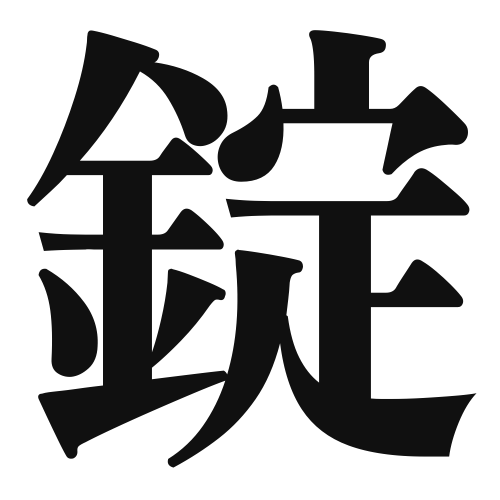1. Overview of Meaning
The kanji “錠” (jou) primarily means “lock” or “bolt.” It refers to a device used to secure doors, gates, or containers, ensuring safety and privacy.
2. Formation and Radical
Formation of the Kanji: The kanji “錠” is a phono-semantic compound (形声文字), which combines the meaning of metal (represented by the radical “金”) and the phonetic component “定” (tei), which suggests a sense of stability or fixing.
Radical: The radical of “錠” is “金” (kin), which relates to metal or metal objects.
3. Examples of Usage
Common Words and Phrases:
- 錠前 (じょうまえ, joumae) – lock
- 錠剤 (じょうざい, jouzai) – tablet (as in medicine)
Example Sentences in Daily Conversation:
- この錠はとても頑丈です。 (このじょうはとてもがんじょうです。) – This lock is very sturdy.
- 薬局で錠剤を買いました。 (やっきょくでじょうざいをかいました。) – I bought tablets at the pharmacy.
4. Synonyms and Antonyms
Similar Kanji:
- 鍵 (かぎ, kagi) – key; while “錠” refers to the lock itself, “鍵” refers to the key that operates the lock.
Antonyms:
- 開放 (かいほう, kaihou) – opening; it represents the opposite action of locking something.
5. Cultural and Historical Background
Relation to Japanese Culture: Locks have been an essential part of Japanese architecture and security practices throughout history, symbolizing safety and protection.
Proverbs and Idioms:
- 「鍵をかける」 (かぎをかける, kagi o kakeru) – to lock up; often used metaphorically to mean securing something valuable.
